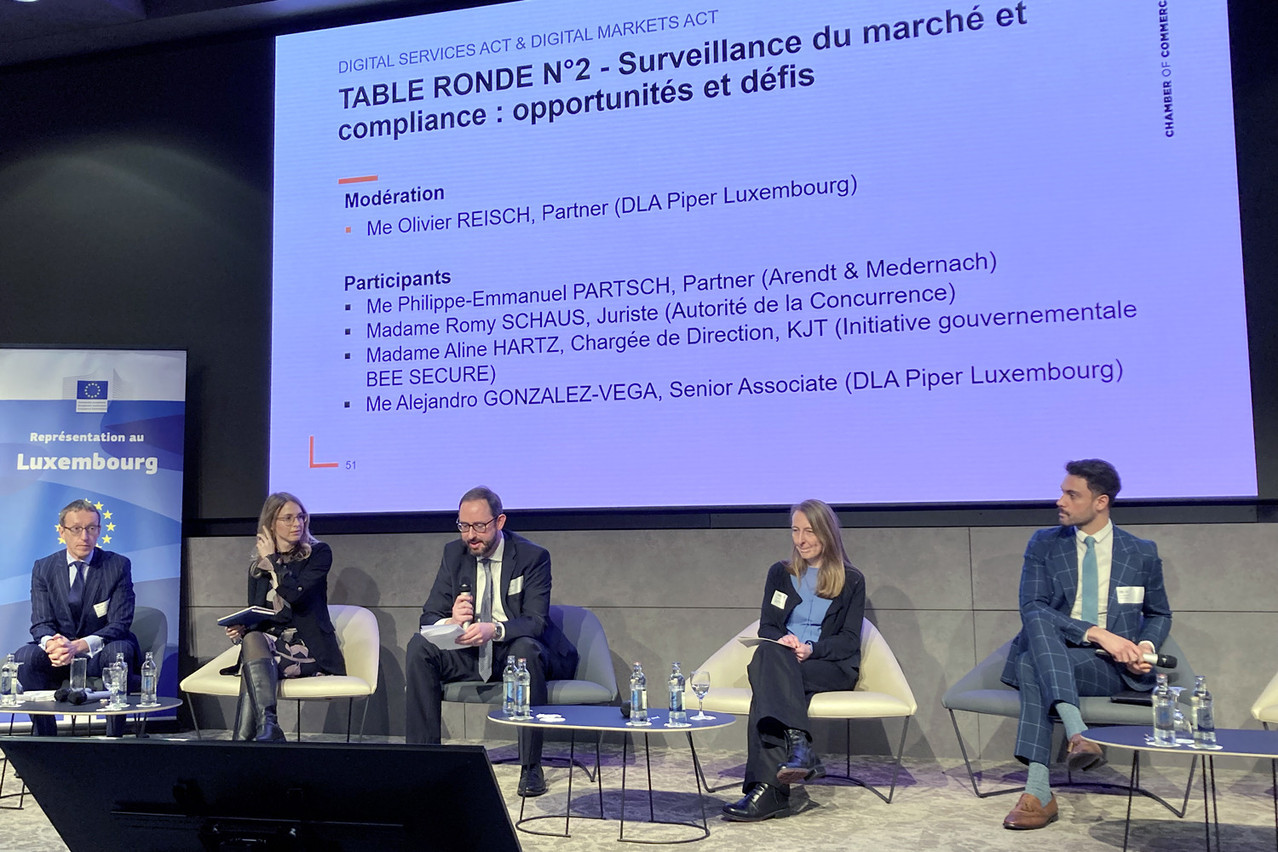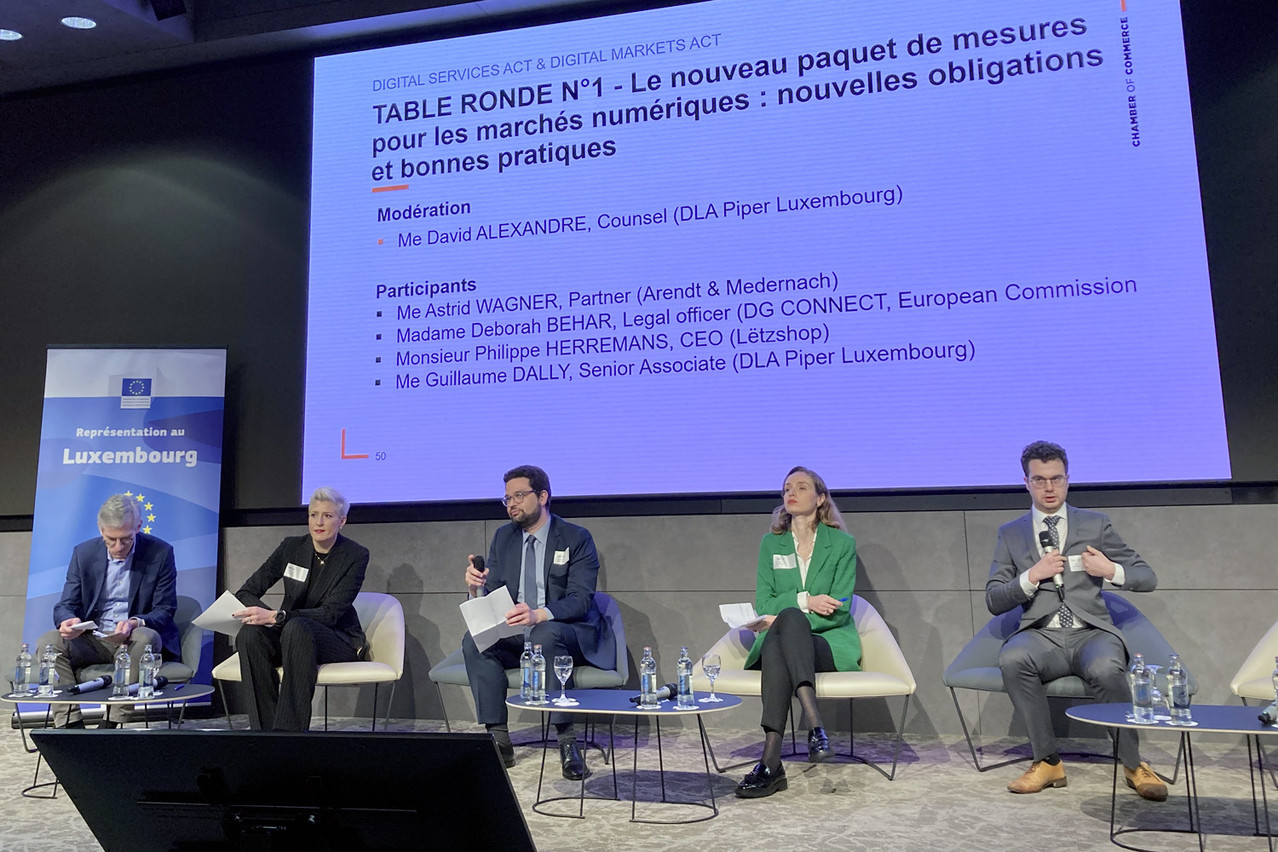Businesses had until 17 February to become compliant with the Digital Services Act (DSA), while the Digital Markets Act, with a go-live date of 6 March, isn’t far behind. Both acts were introduced in the first half of 2023, part of a European Commission effort to create transparency and ensure fairness in the digital environment (while generating new opportunities for intermediary service providers and user businesses). The initiative is unique worldwide.
At the event on 20 February, Chamber of Commerce director pointed out that the goal is a “healthy and viable economic market” for Luxembourg businesses, and particularly SMEs.
Steve Fritz, the economy ministry’s head of European policy and intellectual property, revealed the results of a survey: 80% of Luxembourg companies use suppliers in other EU member states, and 80% of consumers make online purchases in these same member states. Both businesses and users are calling for greater harmonisation in this area, he said, adding: “The DSA and DMA are not a revolution, but a revision of the 2000 law on e-commerce and an evolution of pre-existing regulations such as the GDPR.”
Who is affected?
Joana Quiaos, the economy ministry’s head of digital services and platforms, said: “Everyone is affected as a user.” The European Commission has mentioned by name (VLOPs) and who will have to comply with the new rules, while the competition authority has sent letters to 250 companies likely to be affected in one way or another by the DSA or DMA.
In Luxembourg, sites such as Lëtzshop, Editus and atHome.lu are affected because they host user content on their sites. However, the DSA does not apply to shop or restaurant websites.
Lëtzshop CEO Philippe Herremans comments: “The main challenge is that we are a four-person company with no legal department. We often realise quite late that a new directive is going to have an impact on us, so we act late.” Because of its size, however, the company has benefited from exceptions. Still, it had to:
—update its general terms and conditions
—set up a form for notifying illicit content
—appoint a representative to liaise with the national authority and the European Commission
A large number of Luxembourg SMEs will in fact be in this situation. Companies with fewer than 10 employees and annual sales of less than €2m are exempt from most of the obligations. Some of the companies that attended the talk on 20 February--after receiving a letter from the competition authority identifying them as among the potentially affected--are relieved: they don’t fall within the scope of the DSA for the time being.

The speakers explain the impact on Luxembourg companies. Photo: Maison Moderne
Raising awareness
In each EU member state, a digital services coordinator will support the European Commission at the national level. In Luxembourg, this role is played by the competition authority, which will deal mainly with companies that are not classified as VLOPs.
The chair of the competition authority, , said that the organisation had “set up a new digital service… which will evolve in line with the challenges we face.” Speakers at the event agreed that raising awareness is important, and to that end the European Commission is indeed offering support to companies and clarifying aspects of the DSA.
, partner at Arendt & Medernach, expressed surprise at having received so few enquiries from her clients about the DSA. “Not all our clients are affected in the same way. The obligations they have to comply with vary according to a number of factors, including the size of the company, the type of activity it carries out online and its customer base. Larger customers have probably already had to do the compliance work in-house, but many customers think that they don’t need to comply with the DSA, even though some of them fall within the DSA’s remit.”
This article in Paperjam. It has been translated and edited for Delano.
